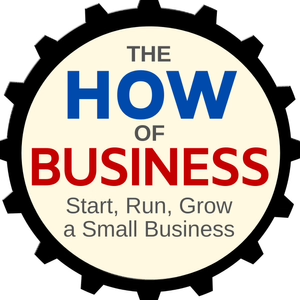
4. Niching Down and Building Authority
06/20/19 • 14 min
Sometimes niching down can freak people out. I get it, it can feel like you're alienating a portion of your audience but today we're going to dive into how to do it right while building authority. Let's go!
Here's my 7 tips to niching down and building authority
3:10 -- 1. Honing in on your niche, and identifying who you serve? This includes an exercise where we explore where there is overlap between what you're good at and what potential clients need.
5:31 -- 2. Double your prices (or at least increase them). People tie money to value and expect to pay more for specialty services. You are now a specialty service!
6:55 -- 3. Don't do something you hate. Let's explore the golden area that intersects "what you're good at", "what the market dictates", and "what you love". Many people are scared to go here because they think it's TO GOOD TO BE TRUE. Repeat after me, nothing is too good to be true.
8:40 -- 4. Market Research. Who is out there in that niche? Can you connect to them? I've found that most people who do well in their specialty are happy to chat about it and answer questions. This combine with some preliminary Googling can help you get your footing when exploring your niche.
9:37 -- 5. Tell people about your niche! Make what you do part of your introduction. Get your niche down to 5 - 7 words so you can clarify what you excell in and make an impact in a short period of time.
10:57 -- 6. Paid Advertising. We dedicate most of time to organic growth, but don't dismiss ads. Analytics have come so far, and they're a relatively inexpensive way to reach an audience outside of your immediate circle.
12:46 -- 7. Show up constantly, and provide value. You can try all the tactics in the world, but nothing will get more traction than doing the work. Writing pitch letters, breaking down how-to's, and writing guest posts may not be the most glamorous work in the world, but it's the work that makes everything pay off in the long run.
Put in the work, and keep on going. You got this!
M
Hosted on Acast. See acast.com/privacy for more information.
Sometimes niching down can freak people out. I get it, it can feel like you're alienating a portion of your audience but today we're going to dive into how to do it right while building authority. Let's go!
Here's my 7 tips to niching down and building authority
3:10 -- 1. Honing in on your niche, and identifying who you serve? This includes an exercise where we explore where there is overlap between what you're good at and what potential clients need.
5:31 -- 2. Double your prices (or at least increase them). People tie money to value and expect to pay more for specialty services. You are now a specialty service!
6:55 -- 3. Don't do something you hate. Let's explore the golden area that intersects "what you're good at", "what the market dictates", and "what you love". Many people are scared to go here because they think it's TO GOOD TO BE TRUE. Repeat after me, nothing is too good to be true.
8:40 -- 4. Market Research. Who is out there in that niche? Can you connect to them? I've found that most people who do well in their specialty are happy to chat about it and answer questions. This combine with some preliminary Googling can help you get your footing when exploring your niche.
9:37 -- 5. Tell people about your niche! Make what you do part of your introduction. Get your niche down to 5 - 7 words so you can clarify what you excell in and make an impact in a short period of time.
10:57 -- 6. Paid Advertising. We dedicate most of time to organic growth, but don't dismiss ads. Analytics have come so far, and they're a relatively inexpensive way to reach an audience outside of your immediate circle.
12:46 -- 7. Show up constantly, and provide value. You can try all the tactics in the world, but nothing will get more traction than doing the work. Writing pitch letters, breaking down how-to's, and writing guest posts may not be the most glamorous work in the world, but it's the work that makes everything pay off in the long run.
Put in the work, and keep on going. You got this!
M
Hosted on Acast. See acast.com/privacy for more information.
Previous Episode

3. Where to Start
Before we get ahead of ourselves, let's start where everyone does... the beginning.
The top 20 questions I first get from people when they first start out
20. Should I name my business my own name, or should I create a separate company name for it?
The short answer is, will this company be intertwined (and reliant on) your own identity, or can it live outside of you. Also, will you ever sell your company. I can't answer this for you, but this will help you come to a more solid conclusion.
4:32 -- 19. Incorporate vs. Sole Prop etc...
Depends on the business structure, but basically stay as a sole prop until you earn more money than you need to live. That way, when you are making more money, you can incorporate, but you can start as a sole prop TODAY.
The caveat is that if it's a highly-liable company, you may consider incorporating earlier to cover yourself from a legal perspective.
We'll dive into this in 2 later episodes, one focussed around Canadian companies and taxes, and the second around American.
6:16 -- 18. Do I need a website with a portfolio.
Not necessarily. Most of your first clients will come from word of mouth, so they will hire you for you. Don't let lack of portfolio stop you from looking for new clients. The reality is, people make decisions from feeling, not necessarily from an intellectual place so instilling confidence in your clients, that you are right for the job is much more important than your portfolio when first starting out.
7:38 -- 17. Do I charge my client tax right away?
This will depend on the region you live in, so be sure to check with your local tax laws. In general, if it's optional in your region, I would suggest registering a tax number right away and charging clients. It adds to your professionalism, will allow you more "write offs" (which we'll cover in another episode), and you can claim that to get back anyways.
9:12 -- 16. Do I need a contract and what should it say?
Legally, the answer is yes. However, you can get some contracts online that will cover you until you until you start diving into deeper waters.
I would say, it's worth investing in a lawyer to draw you up a contract after you've made your first 20K or so. That's not a rule, but let's just say if you're making 90K per year, you should probably be seeking some legal counsel to make sure your business is protected.
10:35 -- 15. What does a proposal look like, and what should it include?
Use a PDF or Google Doc to stat. Include the following
-- Intro to project
-- Breakdown of phases
-- Cost breakdown
-- Social Proof (optional)
-- Payment schedule
12:47 -- 14. Do I need project management softwares?
There are sooo many! If you're just starting out, I would suggest a simple setup of Google docs and folders to get you started with a folder for client to upload image assets, and website copy.
Keep a Google sheet of timeline and payment schedule in there for bonus points.
13:44 -- 13. What do I charge?
There are soooo many answers to this question, but here are some initial steps.
1. Find out what your competitors are charging to get a ballpark
2. Decide on an hourly rate, and price projects using the estimated hours x 30% buffer. You don't need to show clients that calculation, but you can use it for your own references as a starting place.
3. Value pricing: it's very difficult to value price from day 1, so we'll get into that at a later date.
16:24 -- 12. How do I get referrals and testimonials for my future clients?
Ask them!
This might seem very awkward at first, but here's a quick script to help you along. Also, make sure to ask the verbally first towards the end of their agreement.
When you start the conversation, ask...
How was everything for you?
How was it paced out?
How was my communication?
then follow up with,
Hey _______,
That's amazing! I would love other people to have the same experience as you, do you mind putting ________ in writing, I'd love to feature you on my site.
Take the feedback, both good and bad and either turn it into a testimonial, or implement the improvements in your process.
It's important to take the negative feedback as well as the positive to make changes and grow as a company.
17:53 -- 11. What happens when a project goes south?
Sometimes this happens. Sometimes it's your fault, and sometimes it's the clients fault. Without placing blame, it's in your best interest to go back to the contracts and proposals to gain clarification.
I always give the client the benefit of the doubt, so if there was something in my contract that could be mis-interpreted, I take the hit, make the c...
Next Episode

5. Accounting for Freelancers
Today I'm super stoked to be joined by my accountant Susan. Susan Watkin is a recognized and sought-after accounting educator, small business advisor, and start-up strategist. Working closely with business owners in all phases of their business life-cycle, Susan strives to help those owners take their businesses to whatever level they want to reach.
In her approachable style, she’s upfront and pulls no punches when it comes to the reality of small business finance and all that it entails so that those she works with are given the tools for their future success. Susan is proud to be recognized as a leader in digital accounting technology, as well as holding a position as a trainer and writer for Intuit Canada, and part-time professor at both Mohawk and Canadore College in Ontario.
Welcome Susan!
PD: Please note that all the information we are covering in this episode relates to Canadian Freelancers. Some of the major concepts can be translated to the US and beyond, but just keep in mind where our area of focus is.
Here's the following topics we dive into, and questions we have answers for:
Interview Questions Susan Watkin The State of Finance Questions:
2:23 -- About Susan, what she does, who she serves and the services she offers.
Interview Q's
4:30 -- When you work with Freelancers and small business owners, what is their typical level of knowledge on finances, and do you think the school system is lacking in that area, given the rise of the “gig economy”?
Specific Freelancing Questions:
6:55 -- SALES TAX: In Canada, when a person first starts out as a sole prop, do they need charge pay tax? If not, should they opt in to paying right away, and what are the advantages of that?
12:35 -- REMOTE WORK: Since many people are working remotely, we often work with people in different provinces and across borders. Who do we charge tax to, and how much?
19:17 -- INTERNATIONAL CLIENTS: Being remote, there are many times that we deal with US customers. Is it ok to charge in another currency?
23:22 -- EXPENSES: Let’s talk about “write-offs”. Can you clarify what a “write off” is? Because many people believe that it’s free money that you get back from the government. What are some major misconceptions about expenses?
27:45 -- CRAZY EXPENSES & AUDIT POTENTIAL: What are the allowances of expenses when just starting out, and what’s the craziest thing someone has tried to justify expensing?
31:50 -- INCOME TAX: As a general rule, do you have a guideline of how much of your sales you should put aside in the expectation of paying it for tax?
37:05 -- INCORPORATE VS SOLE PROP: People most will start off as a sole prop, but as they grow will consider incorporation. Is there a general guideline on when you should start to consider that? I know each case is different, but when should you start the conversation?
44:55 -- COMBATTING FINANCIAL OVERWHELM: For people who are overwhelmed by finances and stressed out about numbers, what advice would you give to help them stay on top of their cashflow?
50:58 -- STARTING OUT: What’s the 2 major pieces of advice you would give to someone starting from scratch (I’ll also add a couple of my experiences from a Freelance perspective)
53:46 -- INVOICING SOFTWARE: Finally, for a Canadian solo-preneur, is there a bookkeeping/online invoicing program you would recommend, also do you need one right out of the gate? (you can add referral links if you have them)
Susan has also given us a wealth of resources. Here is everything mentioned in the episode:
Free webinars/tutorials for small businesses
https://quickbooks.intuit.com/ca/tutorials/webinars/
For accounting/invoicing software:
https://quickbooks.intuit.com/ca/pricing/
GST/HST Rulings:
Startup Canada:
Find Susan here: susanwatkin.ca and Watkin-sbs.ca
Twitter: https://twitter.com/WatkinSBS
Hosted on Acast. See
If you like this episode you’ll love
Episode Comments
Generate a badge
Get a badge for your website that links back to this episode
<a href="https://goodpods.com/podcasts/freelance-freedom-370643/4-niching-down-and-building-authority-53161598"> <img src="https://storage.googleapis.com/goodpods-images-bucket/badges/generic-badge-1.svg" alt="listen to 4. niching down and building authority on goodpods" style="width: 225px" /> </a>
Copy




